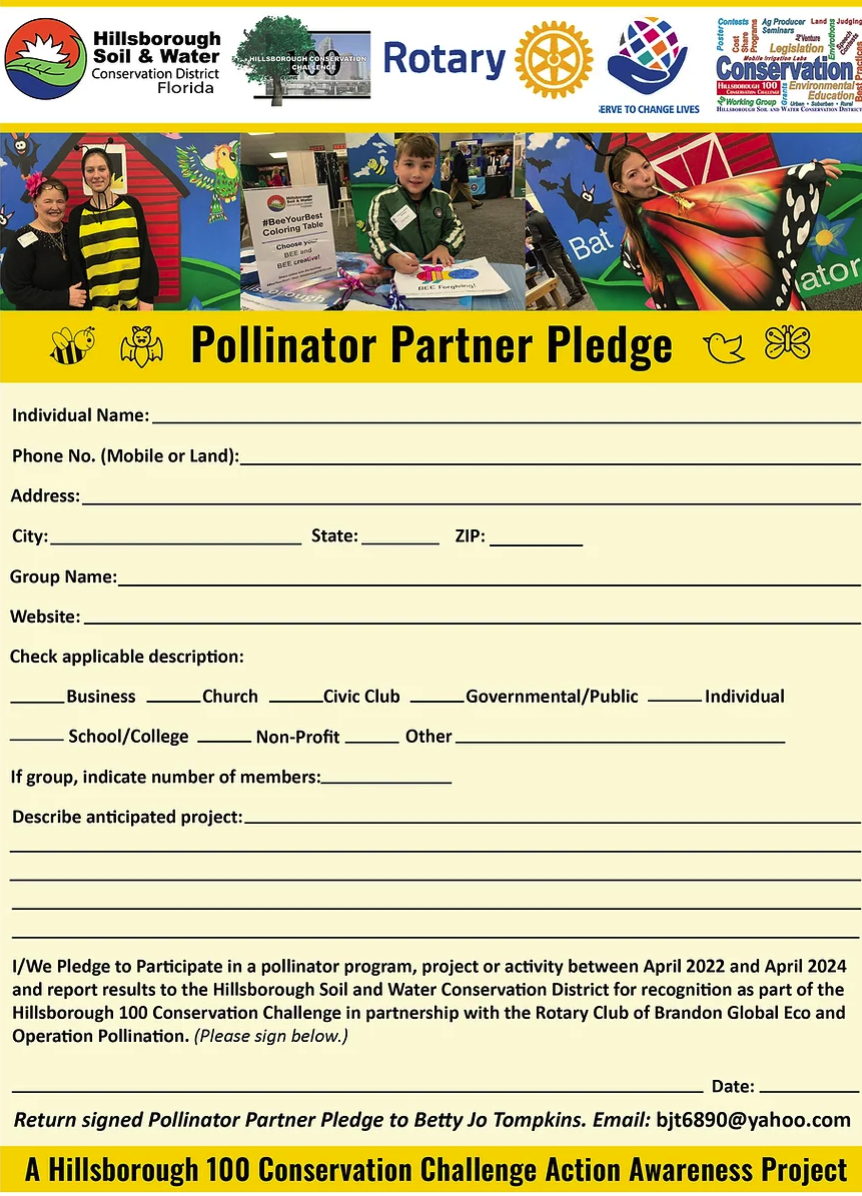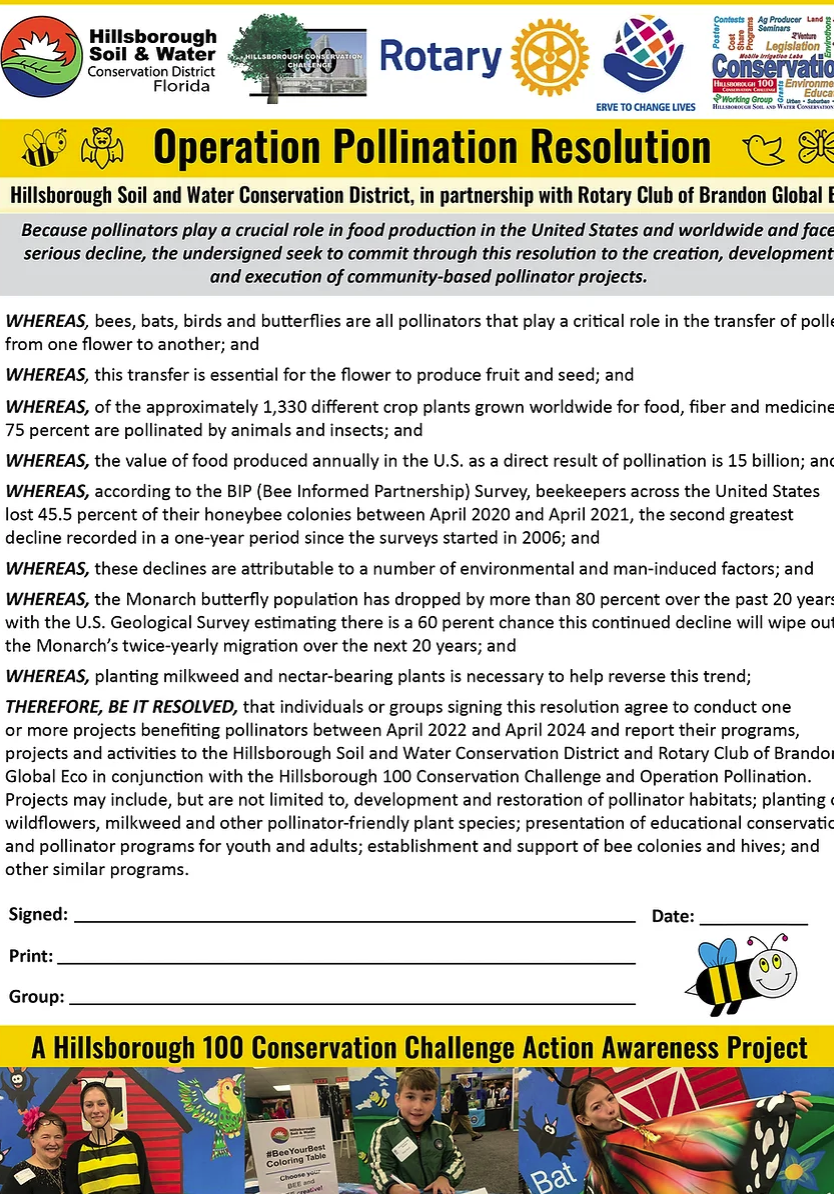'Operation Pollination' Resolution And 'Pollinator Partner Pledge' For Community-Based Projects

Set for an ambitious two-year undertaking is the "Operation Pollination" initiative, presented by the Hillsborough Soil and Water Conservation District (HSWCD) in partnership with Rotary Club of Brandon Global Eco.
"The goal is to sign up at least 100 projects in the coming year, which will be recognized at our 2023 Hillsborough 100 Conservation Challenge luncheon and in the challenge tabloid, and for those groups, as well as others, to conduct their projects now through April 2024," said Betty Jo Tompkins, HSWCD executive director.
Toward that end, the "Pollinator Partner Pledge" asks individuals working alone or in groups to participate in a pollinator program, project or activity and to report results to HSWCD for recognition.
Operation Pollination Partner Pledge .pdfThe Rotary Club of Brandon Global Eco, formerly known as the Rotary Club of Brandon South, adopted its new name after Rotary International added “protecting the environment” to its seven areas of focus. A criteria for Rotary grants is that they be affiliated with the organization’s focus areas.
Suggestions for pollinator projects include developing and restoring pollination habitats;
planting wildflowers, milkweed and other pollinator-friendly plant species;
presenting educational conservation and pollinator programs for youth and adults; and establishing and supporting bee colonies and hives. Invited to participate are individuals and public and private, nonprofit and for-profit groups in a variety of fields, including business, government, worship, community and education.
The "Operation Pollination Resolution" states the many reasons for involving community players in the work to protect pollinators.
Operation Pollination Resolution.pdfThe resolution notes that as pollinators, bees, bats, birds and butterflies "play a critical role in the transfer of pollen from one flower to another, and this transfer is essential for the flower to produce fruit and seed." The resolution notes further that 75 percent of the approximately 1,330 different crop plants grown worldwide for food, fiber and medicines are pollinated by animals and insects.
Stressing the importance of pollinators in a myriad of ways, the resolution states clearly the reasons for the effort, including that beekeepers nationwide “lost 45.5 percent of their honeybee colonies between April 20 and April 2021, the second greatest decline in a one-year period since the surveys started in 2006,” according to the Bee Informed Partnership Survey.
“Declines are attributable to a number of environmental and man-induced factors,” the resolution continues, noting as well that “the Monarch butterfly population has dropped by more than 80 percent over the past 20 years, with the U.S. Geological Survey estimating there is a 60 percent chance this continued decline will wipe out the Monarch’s twice-yearly mitigation over the next 20 years.”
For more, contact Betty Jo Tompkins, HSWCD executive director, at 813-477-8332. Email: bjt6890@yahoo.com.


